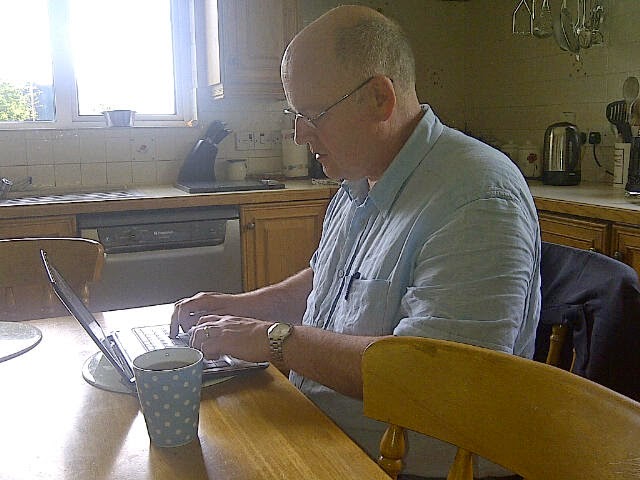Impaired Vision
Is there
something in the name? In April 1801, during the Battle of Copenhagen, Vice-Admiral
Horatio Nelson led a number of warships into the Danish capital’s harbour,
under heavy bombardment from enemy gun batteries on the shore and in the
channel. Fearing the worst, the English fleet’s commander, Admiral Sir Hyde
Parker, signalled Nelson’s vessel, HMS Elephant, to withdraw. Nelson – who had
lost the sight in his right eye, during a battle seven years earlier – famously
held a telescope to his blind eye, told his subordinates that he did not see
the signal and carried on the fight.
Last week,
a namesake of the legendary admiral’s, Social Development Minister Nelson
McCausland, may also have ‘turned a blind eye’ – this time to the Stormont
Executive’s Ministerial Code – just as his North Belfast constituency was being
consumed by ferocious rioting which injured more than 60 police officers. The
violence arose from yet another dispute about marching.
Mr McCausland resisted
a number of invitations by the BBC presenter Stephen Nolan to condemn those who
broke determinations made by the Parades Commission. Minister McCausland wriggled
like an eel: he pointed an accusing finger at the Commission itself, at
dissident republicans, at the organisers of a recent parade in Dungiven, but –
while deploring violence – at no point did he point that same accusing finger
in the direction of people who would break Parades Commission determinations. Instead,
the minister explained, there was a long tradition of civil disobedience (in
which he, himself, had occasionally engaged), and he suggested that the
Commission’s behaviour this summer had brought “the Parades Commission and the
law of the land into disrepute”.
For all his
sophistry, and all his writhing, the minister is still caught on a hook, for
when the dust settles on this parades season, Mr McCausland’s comments on the
Nolan Show could come back to haunt him.
Mr McCausland’s
high political office earns him a handsome salary, as well as certain perks (should
he choose to do so he would almost certainly have a better chance of getting an
All Ireland Final ticket than I would). But with its benefits and privileges
his office also brings “duties and responsibilities”, including to serve all
the people of Northern Ireland equally and to promote the interests of the
whole community towards the goal of a shared future.
These conditions
are laid out in the Ministerial Code. This demands that all ministers affirm a
Pledge of Office, requiring them – among other things – to “uphold the rule
of law based as it is on the fundamental principles of fairness, impartiality
and democratic accountability, including support for policing and the courts as
set out in paragraph 6 of the St Andrews Agreement”.
There would
appear to be little wriggle room. The pledge – which is a condition of a
minister’s appointment – obliges him or her to “uphold” the rule of law, in
other words to confirm or support it (as defined by the Oxford Dictionary of
English). In failing to rise to the Nolan challenge, Mr McCausland squandered a
glorious opportunity – at a dangerous time – to defuse tension and to establish
clearly the primacy of law and order.
Whether he likes the Parades Commission or
not, its determinations are legally binding. When its rulings are flouted, the
law is broken, and the matter then becomes the responsibility of the PSNI. As
we saw in Belfast last week, the consequences of enforcing the law in such
fraught circumstances can be extremely dangerous for police officers – perhaps even
fatal.
The First Minister, Peter Robinson (who is
Mr McCausland’s party leader), suggests that people can judge for themselves
whether to involve themselves in civil disobedience. He is right. Any ordinary
citizen – male or female, nationalist or unionist, you or I – can make up our
own minds whether to comply or not with a law which we consider unjust. In
doing so, of course, we run the risk of prosecution.
Nelson McCausland is not an ‘ordinary’
citizen, though. He is a minister in our Executive. As such, he is not entitled
to pick and choose which laws he supports. That option is closed off to him by
his Pledge of Office.
One word has loomed large in the river of
recrimination which has flowed these past few weeks: ‘respect’. The Chief
Constable, Matt Baggot, used it after last Thursday’s crisis meeting with
leading politicians. Mr Baggot appealed to people to “please respect the rule
of law, even if the determinations are controversial”. The Chief Constable is right
to ask that of ordinary citizens. He is entitled to expect it of ministers in
the Executive.
It will be interesting to see whether
Minister McCausland faces any sanction as a result of his recent behaviour. I
doubt that the matter will be uppermost in the minds of local politicians –
even his bitterest foes’ – as they try to ease tension ahead of the huge Ulster
Covenant centenary parade, in under three weeks time. However, a matter of such
gravity should not be swept under the carpet indefinitely. Turning a blind eye
should be the exception rather than the rule, as we enter a decade of centenary
commemorations.
Ironically, the first man famed for turning a
blind eye – Horatio Nelson – lost the sight of his right eye on a prophetic
date – the 12th of July. Seven years later, in 1801, when his
assault on Copenhagen had reached a bloody pitch, he and his opponents agreed a
truce. The following day, despite the ferocity of their battle, Nelson sat down
with the Danish commander, Crown Prince Frederick, at a sumptuous banquet, and
negotiations with the enemy ensued. Perhaps there is a lesson in that for the
loyal orders and for the modern day Nelson.Ends
